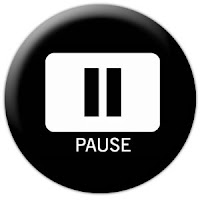 Many people fear speaking on an unknown topic, but they might be not sure on what to say. However, in reality, there are many such occasions. We hear friends talking about Nambia, colleagues mentioning about Retirement or interviewers asking you about Global warming.
Many people fear speaking on an unknown topic, but they might be not sure on what to say. However, in reality, there are many such occasions. We hear friends talking about Nambia, colleagues mentioning about Retirement or interviewers asking you about Global warming.Allow me to share with you the A-B-Cs to get you started when you are given a topic to partake in:
1. Appease yourself - Pause & not rush into speaking.
 We often panic when we are asked to speak. We fear that our audience would be anxiously waiting for us. But we fail to think which is worse - letting them wait for a while or opening their ears to a set of 'rubbish' & unconsolidated thoughts. If we can't do this 1st step of appeasing yourselves, then how would the audience even be pleased?
We often panic when we are asked to speak. We fear that our audience would be anxiously waiting for us. But we fail to think which is worse - letting them wait for a while or opening their ears to a set of 'rubbish' & unconsolidated thoughts. If we can't do this 1st step of appeasing yourselves, then how would the audience even be pleased?Tip: Repeat the topic in your head. By repeating it, your mind is focused on this topic. Deliberately pause for 10 seconds. As you pause, continue to breathe deeply.
2. Brainstorm for ideas
More often than not, we speak off the calf, in anticipation that thoughts will form as you speak. That is so wrong. For if you cannot form your thoughts whilst standing, what makes you think you can do it as you face the audience & handle the butterflies in your stomach? My advice would be to form 2 to 3 distinct points before you utter your first word. Some people can achieve 5 points when asked 'What are the attributes of a winner?' And when asked to elaborate, the points are 'perseverance', 'hard work', determination', never-say-die spirit' & 'trying one's best'. Indeed these are 5 points, but they belong to 1 main idea. Rather than worry about elaboration on a main idea, brainstorm for 2 to 3 main ideas. For e.g., I would be thinking 'commitment', 'planning ability' & 'never-say-die spirit'. What are your main ideas?
Tip: Form 2 to 3 distinct points about the topic. They form the content of your speech.
3. Conclude your speech
A mistake most people make is the failure to conclude. They forget that every speech needs a conclusion, regardless of whether it is 10 minutes or a minute. A conclusion is not for you to sound like a nag. It is there to tell your listeners that (a) this is your stand, with a summary of your main points, (b) you are going to end your speech, and (c) the relationship between your points & the title of the speech.
Tip: Don't just walk off the stage or end abruptly. The audience need a final statement from you so that they can appreciate your speech content with a sweet aftertaste.
Now that you have learnt these 3 tips, volunteer yourself at the next table topics session. As the saying goes, practice makes perfect.
No comments:
Post a Comment